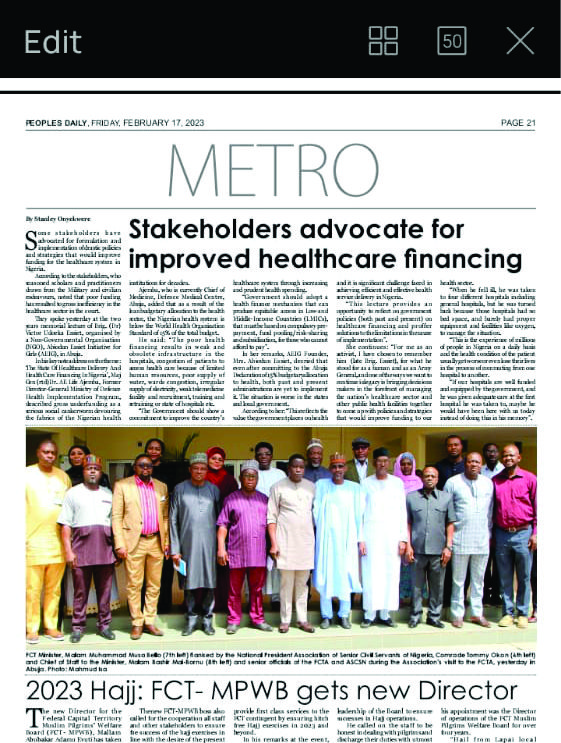Gross underfunding is a severe social cankerworm devouring the fabric of Nigerian health institutions.
As a result of the lean budgetary allocation to the health sector, the Nigerian health system is below the World Health Organisation Standard of 15% of the total budget.
This gross underfunding of the health sector has been an issue for years. In the late 1980s, external aid in form of technological know-how and personnel was affected by Nigeria's political imbroglio and democratization sanction. Then most medical exchange programmes that often assist healthcare delivery services were stopped. The poor health financing results in weak and obsolete infrastructure in the hospitals, congestion of patients to access health care because of limited human resources, poor supply of water, wards congestion, irregular supply of electricity, lack of medical facilities and recruitment, training and retraining or state of hospitals etc.
The Nigerian Health system has performed woefully against all vital health indices, trailing behind many African countries despite its enormous potential. The reason for this is mainly due to the financial risk Nigerians face in accessing healthcare. This paper address sed the implications of the current healthcare financing in Nigeria on access and equity.
It shows the imperativeness of alternative healthcare financing in line with best practices, from comparable Low-and Middle-Income Countries (LMICs), apart from the current National Health Insurance Scheme (NHIS).
It is recommended that the NHIS should be strengthened through policy reform to embrace fund pooling/risk-sharing, subsidization for the poor and the vulnerable, compulsory/ mandatory enrolment, and non-fragmentation of NHIS.
The domestic fiscal budget for health should be increased and a tax-based financing mechanism that has been progressive in all LMICs should be put in place, thereby preventing the need for unsustainable reliance on external funding.
A comprehensive package of health at the point of care is also necessary.
The Government should show a commitment to improving the country's healthcare system through increasing and prudent health spending.
Government should adopt a health finance mechanism that can produce equitable access in LMICs that must be based on compulsory pre-payment, fund pooling/risk-sharing and subsidisation, for those who cannot afford to
pay.
Fund pooling and risk-sharing involve aggregating funds and
redistributing them equitably between the rich and the poor, the employed and the unemployed, and the healthy and the sick.
END

